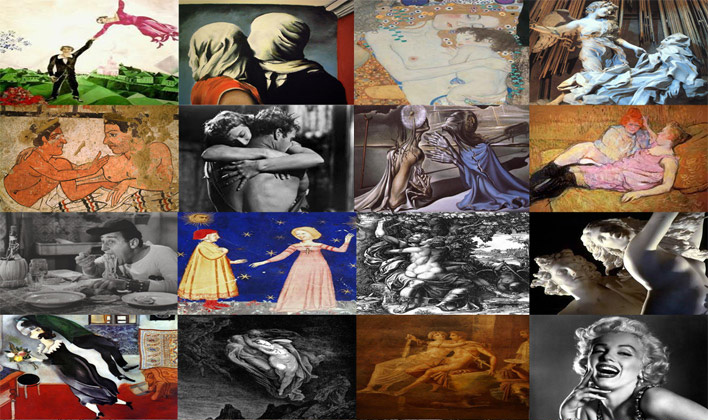Ethics and desire: Il responsabile delle risorse umane by Abram Yehoshua
Abstract
This work offers a Freudian lecture of Yehoshua’s novel, based on the contrast between ethical project and dynamics of desire. The protagonist is a human resources manager from Jerusalem going to Russia with the corpse of an employee dead in an attack; he has a metamorphosis that seems on one hand functional to the construction of a moral apologue: as in Lévinas’ late thinking, so in Yehoshua the responsibility for the Other is entrenched in our subjective being. The Manager arbitrary inverts his route and brings back to Jerusalem the victim’s coffin, mother and child because this allegoric City belongs to everyone and its sharing is the only achievable reparation. What stays in the background in the ‘ethical’ interpretation of the text is the role of desire. The beginning of the inquiry on Julia’s corpse causes in the text the emerging of symmetrization (as Matte Blanco would say). Julia’s body, desirable althought (or because) closed in a coffin, causes the breaking in a dimension that, potentially, don’t know the distinction between things but, conversely, assimilate and confuse them in a unique reality.Downloads
References
Booth, Wayne C., The Company We Keep. An Ethics of Fiction, Berkeley-Los Angeles-London, University of California Press, 1988.
Ferrari, Armando B., L’Eclisse del corpo. Una ipotesi psicoanalitica, Roma, Borla, 1992.
Ginzburg Alessandra, Il miracolo dell’analogia. Saggi su letteratura e psicoanalisi, Pisa, Pacini, 2011.
Jakobson, Roman, Essais de linguistique générale, Paris, Éditions de Minuit, 1963, trad. it. Saggi di linguistica generale, Ed. Luigi Heilmann, Milano, Feltrinelli, 1966.
Matte Blanco, Ignacio, The Unconsciosus as Infinite Sets. An Essay in Bi-Logic, London, Karnac, 1975, trad. it. L’inconscio come insiemi infiniti. Saggio sulla bi-logica, Ed. Pietro Bria, Torino, Einaudi, 1981.
Orlando, Francesco, Illuminismo, barocco e retorica freudiana, Torino, Einaudi, 1982.
Orlando, Francesco, “Dodici regole per la costruzione di un paradigma testuale”, L’Asino d’oro, 1, maggio 1990.
Ricoeur, Paul, Soi-même comme un autre, Paris, Éditions de Seuil, 1990, trad. it. Sé come un altro, Ed. Daniella Iannotta, Milano, Jaca Book, 1993.
Testa, Enrico, Eroi e figuranti. Il personaggio nel romanzo, Torino, Einaudi, 2009.
Yehoshua, Abraham B., Tutti i racconti, Torino, Einaudi, 1999.
Yehoshua, Abraham B., Il potere terribile di una piccola colpa. Etica e letteratura (1998), Torino, Einaudi, 2000.
Yehoshua, Abraham B., Il responsabile delle risorse umane (2004), Torino, Einaudi, 2005.
Copyright Notice
You are free to copy, distribute and transmit the work, and to adapt the work. You must attribute the work in the manner specified by the author or licensor (but not in any way that suggests that they endorse you or your use of the work).









